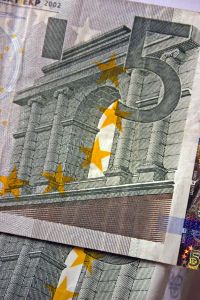
The impact of free trade on the financial crisis … and vice versa
Behind the currency wars and the worsening global economic crisis lies a largely unquestioned free trade model that both contributed to the crisis and, without radical reform, is a major obstacle to overcoming it.
The financial and economic crisis has revealed the fundamental problems of the free trade paradigm: free trade can lead to huge trade surpluses and deficits among countries with unequal trade capacity and unequal trade, economic and social policies. These trade imbalances and resulting current account deficits were first blamed to have contributed to the crisis and are now considered to be an obstacle to recovery of those countries with a trade deficit, such as the US, and create foreign exchange problems for some countries face (see below).
It needs to be said openly: if China had not been member of the WTO, it would not have been able to build up a such a trade surplus without new barriers by others. Of course, the US never thought that its bullying stance in favour of free trade at the WTO and in FTAs would bring it in a position of a huge trade deficit without means to intervene. The US had been pushing very hard during and after the Uruguay Round to liberalise financial services and restrict governments from (re)regulating them. Consequently, financial complex and speculative products and financial operators spread around the world in an unregulated way, contributing to the financial crisis.
The recent proposal by US at the G20 to limit current account deficits and surpluses below 4% of a country’s GDP, is in fact admitting that the free trade does not work. But now, the US proposal is inacceptable to others. In anyway, it would intervene with the WTO rules and FTAs which are binding international laws.
The impact of the crisis on trade
The crisis has shown the dangers of the free trade paradigm: in times of crisis, all countries want to export their way out of the crisis through export strategies, which is a situation that existed in the pre-war period in the 1930s. However, export strategies that lead to trade surpluses in one country result in trade deficits elsewhere. The Bretton Woods system after World War II had designed a mechanism to intervene against countries with trade and current account surpluses or deficits, through the IMF. However, this and other attempts failed to tackle trade imbalances and the US did not want to submit itself to external control.
Now, the WTO’s negotiation round, the so-called Doha Development agenda, is stalled because the advanced countries want more access for their exports to overcome the crisis, while many developing countries still have not seen many of their interests included in the current draft texts. In FTAs, advanced countries are pushing hard to defend their comparative advantage (such as access for services, more protection of intellectual property rights) and maintain access to raw materials (a major comparative weakness of the EU). At the same time, more constituencies in the rich countries raise their voices to not allow more imports e.g. in US and EU’s FTA with South Korea.
The financial crisis and its aftermath revealed major weaknesses and vulnerabilities of countries that submitted themselves to free trade regimes and export-lead strategies. The benefits of free trade do not only come from open markets, but also depend very much on:
- the value of foreign exchange rates, which became very volatile during the crisis and undermined exports when the exchange rate of exporting countries went up;
- credit for trade, which shrank dramatically during the crisis;
- credit for production, which was lacking in countries where foreign banks (whose presence was supported by free trade agreements in financial services) were repatriating capital or very restrictive in providing credit due to the crisis;
- foreign direct investment and portfolio investment as far as it was beneficial for (export) production, which declined sharply when the financial crisis broke out and portfolio investment withdrew;
- purchasing power in the import markets, which dropped in Western markets due to the financial and economic crisis, leading to less export earnings and job losses in exporting countries; and the
- the debt situation of a country, which increased for some countries after they had to borrow again due to the crisis with acceptance of harsh and unsustainable loan conditionalities.
Currency wars instead of trade wars
The crisis has also clearly proven that free trade combined with free movement of capital reinforces balance of payment, trade and economic imbalances, which was already recognised by Keynes. Since capital always flows where it gets most profits, it now flows to a few booming countries while other countries suffer from outflows and lack of productive credit. Currently, emerging countries are suffering from huge capital inflows because returns on investment in advanced countries are so low.
So, even it the US is printing money (‘quantitative easing’) to stimulate its own economy, dollars are leaving the US and freely flowing into other countries with high economic growth and who liberalised their capital account. Since emerging market countries’ exchange rate is increasing due to these speculative capital inflows and not so much because of more trade, and because trade agreements keep trade liberalised, they are intervening in currency markets and imposing all kind of capital or currency controls to stop an increase in exchange rate (e.g. Brazil, South Korea).
However, the rules on capital movements in FTAs and in the services agreement in the WTO impose strict conditions on the use of capital controls, often forbidding their use for preventive measures as is currently the case. Moreover, the huge capital flows are stimulated by unregulated speculators (hedge funds etc.) and financial operators (derivatives traders, carry traders) whose presence worldwide has been stimulated and protected through free trade in (financial) services agreements.
Some controls on capital inflows via restrictions on currency swaps trading or taxing short term investment, are in breach of rules on free trade in financial services under the WTO and FTAs by those countries that made commitments in financial services liberalisation. Trade treaty rules hardly allow to stop speculative trading in food commodity derivatives can hardly be stopped by countries which have liberalised derivative trading through free trade agreements. Some trade agreements that cover financial services can even prevent financial reforms.
What does does this all mean for new FTAs being negotiated?
The current crisis and its consequences have shown that developing countries need to maintain policy space to protect themselves against gaps in international economic governance and the many pitfalls of the free trade paradigm.
At a minimum, the current restrictions on capital controls, as worded in different FTAs signed by the EU, should be changed so that preventive measures against speculation and volatility can be taken. Also, the EU might need to reconsider its constitution (Lisbon Treaty), which only allows the EU countries to restrict freedom of capital movement in very exceptional circumstances.
In addition, there should be no rules that prohibit a needed ban or regulation of financial services. There should be a treaty obligation for tightly regulate and supervise financial services and prevent excessive speculation. There should be no further negotiation to liberalise financial services unless international regulation and supervision are in place.
Given the many pitfalls and problems with the free trade paradigm, the principle of competing to get most access for exports should be replaced with cooperation to manage trade. The aim of trade agreements should not be trade as such but equitable and sustainable production, trade and consumption. This would need complete overhaul of the WTO and FTAs. Unfortunately, the EU is still under the illusion that free trade is the only existing paradigm and policy.







